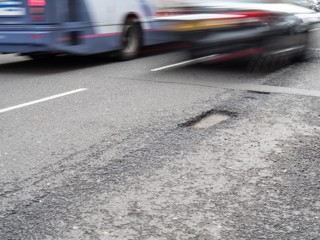Road upgrades are being kickstarted by the Transport Secretary today, with the launch of a new ‘Acceleration Unit’ and £360m funding boost for road and rail projects.
The unit is set to be in place next month and will be led by Darren Shirley, currently chief executive of the Campaign for Better Transport and formerly of Which? Magazine.
Transport Secretary Grant Shapps said: “As Britain begins to get moving once again after four months of lockdown, no-one should underestimate the scale of the challenge ahead.
“We want to accelerate Britain’s recovery by investing in vital infrastructure that will help get businesses back on their feet, create jobs to replace those that have been lost and level up our country.
“The creation of our new Acceleration Unit and investment in our roads and railways will ensure we build back better, greener and faster in the future.”
The Acceleration Unit will engage with experts with significant experience in delivering infrastructure projects including Highways England’s director of complex infrastructure projects, Chris Taylor, who oversaw the construction of the £1.5 billion A14 scheme, which was delivered on budget and eight months ahead of schedule, and Mark Reynolds of MACE, who oversaw the construction of the Nightingale hospital in East London in nine days.
The new team of specialists will join the Department for Transport (DfT) in order to tackle delays to infrastructure projects and drive forward progress for rail passengers.
Welsh railways will recieve the bulk of the new funding, with £343m destined to deliver better, faster, more reliable journeys for passengers.
Anthony Smith, chief executive of the independent watchdog Transport Focus, said: “We now have a once in a lifetime opportunity to build roads and railways that reflect the way we live and travel now and for better connections in future.
“To get Britain moving again it’s vital that the Government and the new Acceleration Unit listens and responds to transport users’ priorities and communicates its plans to improve services.
“The acid test of all these changes will be when users experience a more attractive transport network. That includes improved reliability and services that are value for money.”
The second Road Investment Strategy (RIS2) will spend over £27 billion between 2020 and 2025.
It will take forward schemes such as dualling the A66 Trans-Pennine and upgrading the A46 Newark bypass to address congestion, and building the Lower Thames Crossing to increase road capacity across the Thames east of London by 90%.
The Government is also investing £20m to develop the Midlands Rail Hub, progressing plans for a major programme of improvements to rail services across these regions.
Furthermore, it said it will make an “unprecedented investment” in urban transport, starting by confirming allocations of over £1bn from the Transforming Cities Fund.
This will deliver a range of local transport schemes, including an iconic new Central Park Bridge in Plymouth, a significant increase in the capacity of the Tyne and Wear Metro, and new cycleways in Bournemouth, Christchurch and Poole.
In line with the Government’s priorities, this will also include around £800m for bus and cycling infrastructure.





















Login to comment
Comments
No comments have been made yet.